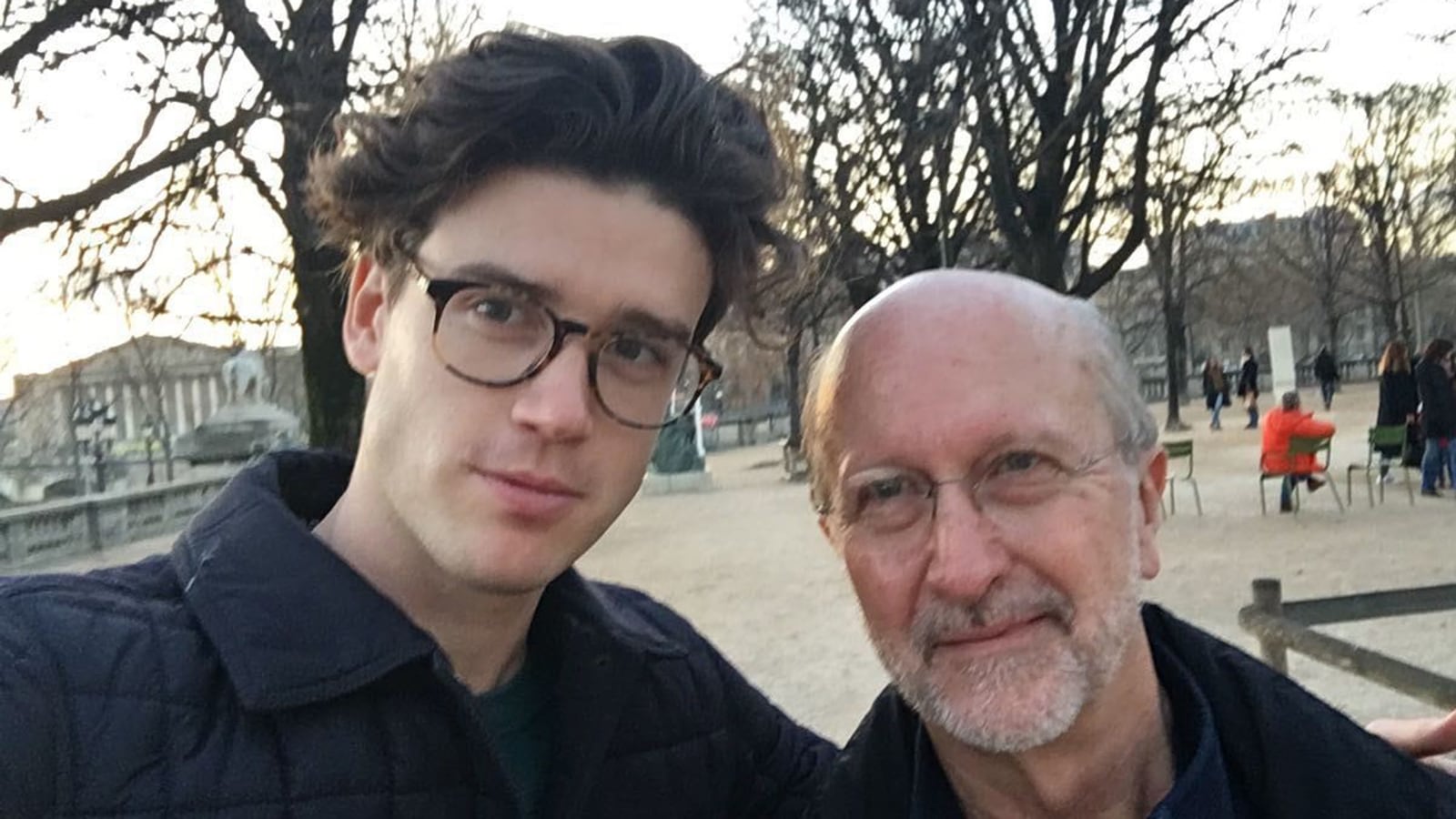I had no business being friends with Chris Dickey.
He was a legendary foreign correspondent who somehow also found time to write richly researched history books. I started at The Daily Beast when I was just out of school at 21 as a reporter. Having done multiple newsroom internships in college, I’d experienced more than my share of the insouciance and disdain with which news veterans regard young colleagues. So I had no expectations that anyone successful in the industry would be kind.
Then, suddenly, at 24 I became the Daily Beast’s weekend editor, a job that included not only working with Chris on weekends on foreign coverage but also delivering two new series—on spies and cartels.
To say I had impostor syndrome would be an understatement. Chris was four decades my senior and had covered nearly every major war in the last few decades. I mostly made waves at The Daily Beast for arriving early to stock up on free cereal.
And yet at every turn he was generous with his time, ideas, compliments, and perhaps most important, his pen. He saved me at countless junctures. When higher-ups had some seemingly impossible idea, he somehow knew a perfect writer he’d once been buddies with during some war. If I had come across some curious aside in a book I was reading and mentioned it to him, he’d be just as likely to write about it for me as assign it out. (For example: his delightful exploration of Paris’ most scandalous painting, Gustave Courbet’s l’Origine du Monde, and its original Muslim owner.) Given the disparity in our qualifications, his willingness to collaborate as equals astounds me still.
A big part of this business, at least for me, involves insecurity. You put your ideas and words out there, and that leaves you open to tremendous self-doubt (which can also be fueled by reader responses!). But when I wrote some ridiculously long pieces, he always had a compliment. And a compliment from him meant the world.
I’ve been fortunate in my nine years at the Beast to have had jobs that allowed me to work remotely, and so I was often in Paris three to four times a year. We’d meet for a few drinks over lunch and often go on a long walk to see some building he’d just noticed or a street he felt wasn’t sufficiently appreciated. He’d talk about how the Paris he knew growing up (his father wrote Deliverance) was actually dark gray because of all the pollution. Just before he died, he posted a picture of a building on Instagram that I’d never seen (likely because I wouldn’t have paid close attention to a McDonald’s) near Gare Saint-Lazare.
When we got together, there wasn’t really much we didn’t talk about. Given his remove, he loved office gossip. Overlooked history was one of his favorite topics (his most recent piece was on a statue of Gen. Alex Dumas the Nazis destroyed). Chris never tired—or at least didn’t show it—of my asking about his time as a war correspondent or the glory days of print journalism. I got plenty of fabulous stories about Noriega, the Grahams, and the Iraq War I can’t wait to tell my kids some day. One of his favorites was in retelling how, in an attempt to knock her off her famously on-script persona, he asked Condoleeza Rice if she had any sexual tension with George W. Bush. (Chris, who firmly believed that sex and attraction play a far greater role in history than a lot of historians and journalists want to admit, was adamant that it was a legitimate question.)
He could take me to an art exhibition and rhapsodize about brushwork in a painting or gleefully unravel the latest scandal rocking the City of Light—which Hollande often ably provided. He introduced me to the best lunch spot in all of Paris, which as travel editor I’d refrained from writing about so as to preserve it for him, but Juveniles near the Jardin du Palais Royale should now be enjoyed by all as it was beloved by Chris.
His generosity didn’t extend to just me. Anyone I brought along to a meal with him was treated as if they were the most interesting person Chris had met in a while. I took it as the highest compliment that a man who counted Joan Didion as a close friend considered me interesting enough to post a photograph of me in my sweatpants.
When one of my sisters was stuck alone in Paris during a heat wave, Chris gamely escorted her around the city for a couple days, preventing a big brother’s nightmare. When I later dropped that same sister off at USC, I wrote Chris expressing my fears after driving past a row of frat houses, to which the man with a keen understanding of life’s complexity responded, “Hah! I can imagine your trepidation driving past those animal houses—and her excitement!” As I began to grapple with the loss today, another sister told me that years ago she’d been seated next to him at a Women in the World conference. Chris had struck up a conversation with her, unaware until many minutes later that she was my sibling. If I found most humans even a fraction as interesting as Chris did, I’d be far better at my job.
Chris had family in the D.C. area, including a granddaughter he could not gush enough about. So whenever he was in town we’d try to host a get-together of Beasts past and present to celebrate him. Sometimes they’d be casual affairs, drinking wine. But one time we hosted a big dinner party that ended with one very inebriated journalist essentially yelling about a surgery affecting infant males. I’ll never forget Chris’ look of bemused perplexity, which I imagined had him thinking, “Is this the new D.C. dinner party?!”
I had planned on living in Paris for three months from May through July this year, but that became impossible because of coronavirus. Needless to say, our planned lunches went out the window, as did some excursions we had planned. I had been excited to get to know his gorgeous wife Carol, whom I’d only met once but Chris always raved about.
So instead, on the mornings I joined our newsroom’s daily Zoom meetings, I would sign on five minutes early because I knew Chris would be on. We’d chat about whatever—empty Paris, the Mountain West where I was hiding out, books we were reading—often without realizing the rest of the senior edit team had come on and just wanted to get this thing rolling. I’m not sure I ever want to join another one of those things without him.
Chris taught me many practical things. I was copied on many of his emails (a habit of his to make sure nobody was left out of the loop) and learned from his graciousness-up-to-a-point way of handling journalists. If I had a complicated story that seemed impossible to wrangle, he was quick to remind me that nobody was preventing me from focusing on one part and doing another down the line. But the biggest thing he taught me was about the power of a gesture. Of being courteous. Of being kind. And never being stingy with a compliment.
He was the kind of American we should all aspire to be and that the world can admire. He was a lover of beauty in an ugly world.
I hate that his sudden death means I can’t tell him how much he meant to me—and that despite promising over and over, I hadn’t gotten around to his latest book, Our Man in Charleston: Britain’s Secret Agent in the Civil War South. Especially since Chris was the one always pushing me behind the scenes to pursue a book project of my own.
We’ve all been told a thousand times to make sure you tell the people you care about just how much they mean to you while you still have the chance. So take it from me—because I’d give a lot to make sure he knew: Always let the people you love know that you love them.
But just as important, be kind to somebody figuring out their way in your corner of the world. You cannot imagine the impact it will have.

